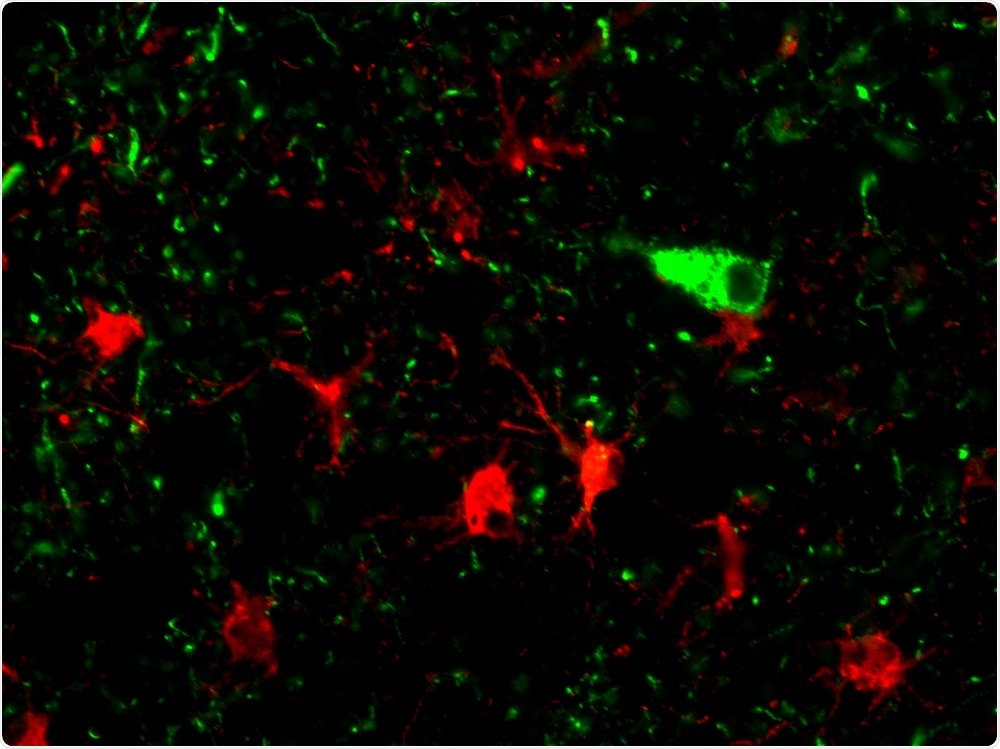Researchers at the University of California have made an important discovery about the neurodegenerative processes involved in dementia. The finding could pave the way for therapies to slow or halt progression of the disease.
 Brain scan of dementia patient shows neurons with Tau protein (green) and reactive astrocyte cells (red). (Credit: UCLA Geschwind lab)
Brain scan of dementia patient shows neurons with Tau protein (green) and reactive astrocyte cells (red). (Credit: UCLA Geschwind lab)
Senior author Dr. Daniel Geshwind and team have identified two major groups of genes involved in the mutations that lead to excess production of tau, a protein thought to contribute to neuronal loss in dementia.
The study was largely conducted using mouse models, but the team also performed experiments using human samples, suggesting that the same genetic process occurs in the brains of humans.
Equipped with this knowledge, the team searched a large database of information on the genetic effects of experimental therapies, to find ones that may interfere with neurodegeneration.
As reported in the journal Nature Medicine, the study identified molecules that interfered with neuronal loss.
Our study is the most comprehensive published effort to date to identify the source of neurodegeneration across species and provides an important roadmap for the development of potentially effective new drugs for Alzheimer's disease and other dementia.”
Dr. Daniel Geshwind, Senior Author
For the study, the team used an approach called systems biology, which uses powerful genomic tools to look at the genome holistically. The approach takes into account the interactions that occur between thousands of genes and the cells and proteins they code for.
The method identified genetic processes involved in a mutation that causes excess tau production in a form of early-onset dementia called frontotemporal dementia.
A similar process has also been identified as playing a role in Alzheimer’s and another form of dementia called supranuclear palsy.
Geschwind and team hypothesized that one reason why the results of dementia models in mice are often not translatable to humans is because they mostly use a single inbred strain.
To address this, the researchers investigated the mutation they identified in three distinct strains of mice. They studied genetic activity in different parts of the degenerating brain across different timepoints.
Across all three strains of mice, two groups of genes were found to be associated with neurodegeneration in susceptible areas of the brain.
There is still a significant amount of work that needs to be done to develop drugs that could be effectively used in humans against these targets, but this is an encouraging step.”
Dr. Daniel Geshwind, Senior Author